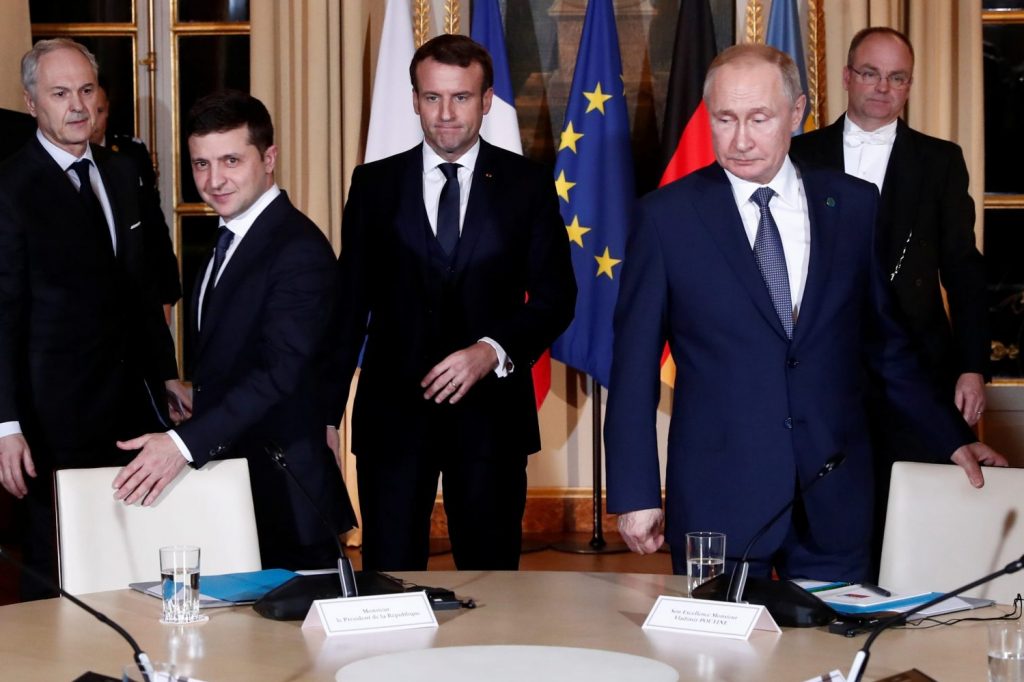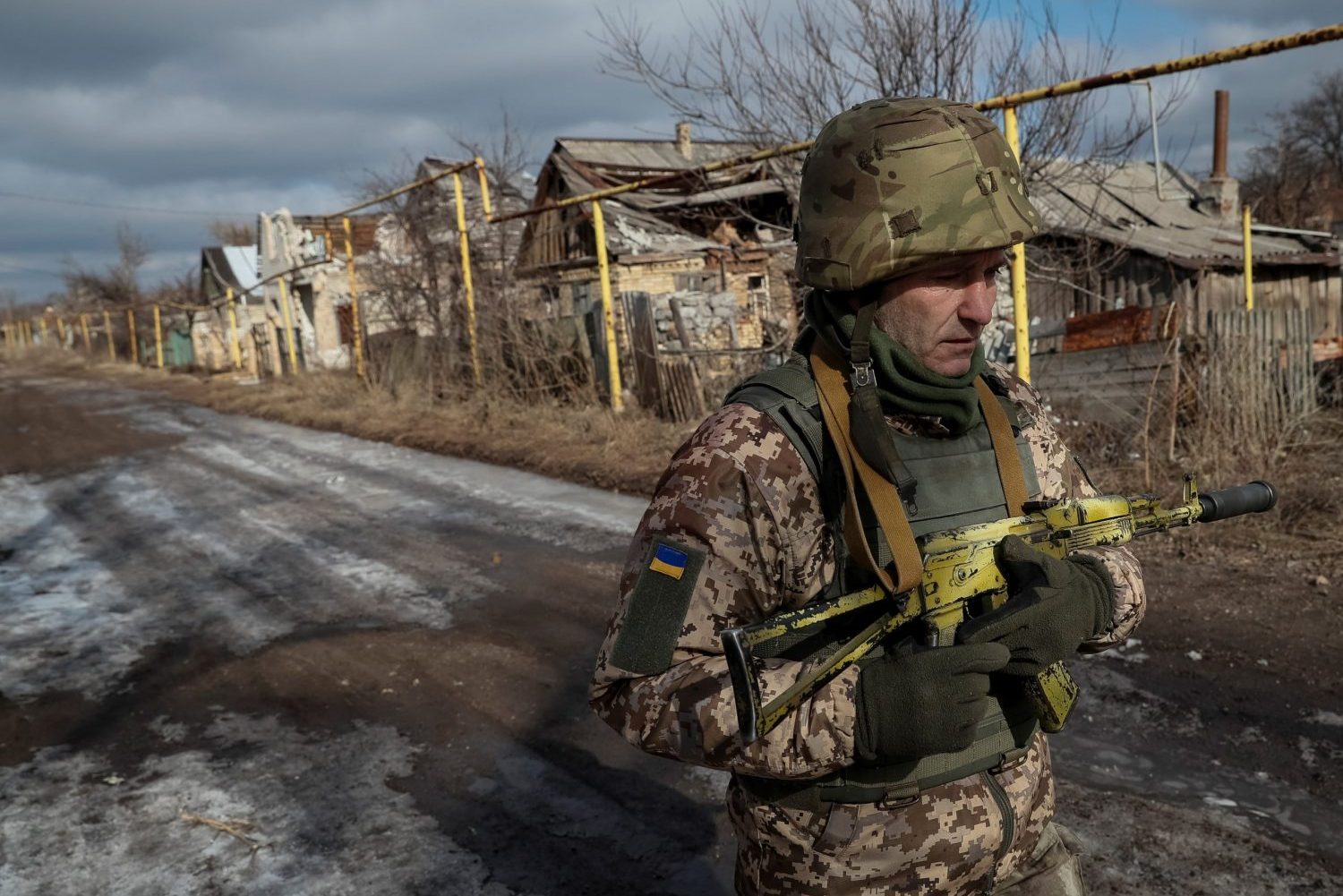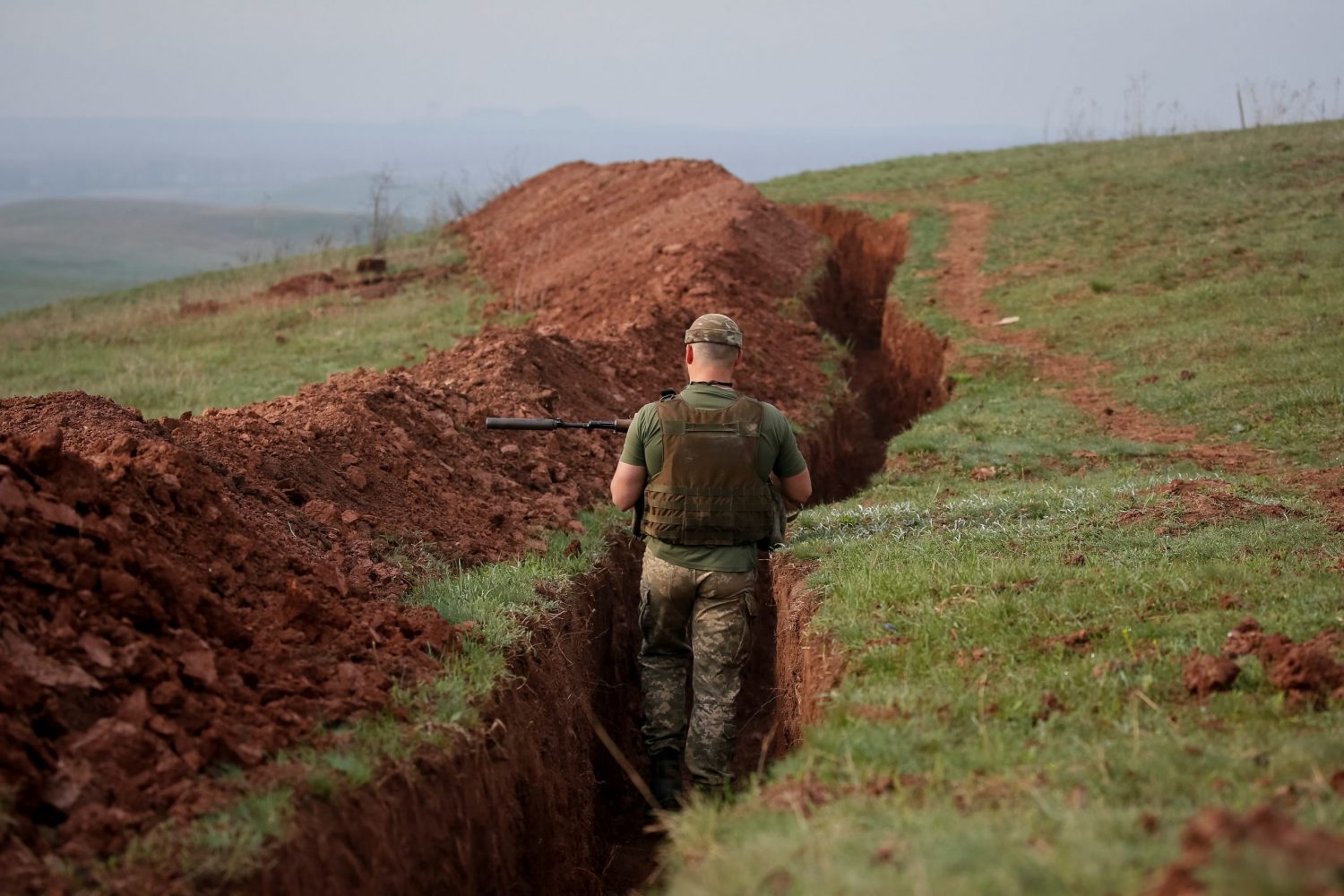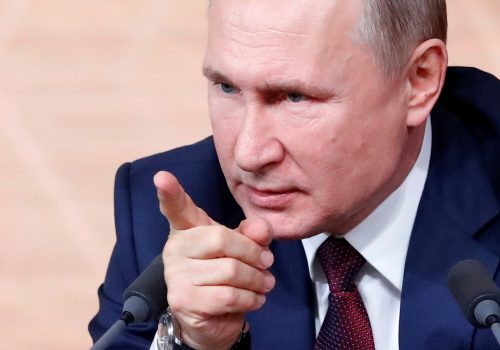As the undeclared Russo-Ukrainian War approaches its sixth year, there is little sign of progress towards peace in eastern Ukraine. The spring 2019 election of Volodymyr Zelenskyy as Ukraine’s new president had sparked fresh hopes of an end to the conflict. However, Zelenskyy’s first face-to-face meeting with his Russian counterpart Vladimir Putin in Paris at the end of last year proved anticlimactic. No breakthrough was forthcoming.
The Paris summit made clear that there is still considerable distance between the Russian and Ukrainian visions of a post-conflict settlement. Officially, at least, disagreement centers on the sequencing of the measures outlined in the Minsk Protocols, which were signed by Ukraine, Russia, France, and Germany in early 2015 in a bid to end active hostilities and pave the way for a sustainable peace.
The Minsk Protocols are problematic in a number of ways. First and foremost, it is important to underline that they were signed under duress at a time when Russian forces were rapidly advancing in eastern Ukraine. According to the memoirs of former French president and Minsk Protocols co-signatory Francois Hollande, Putin openly threatened to “crush” the Ukrainian military during the heated all-night negotiations that took place in the Belarus capital prior to the February 12, 2015 signing.
Aside from the conditions in which they were negotiated, the main practical problem with the Minsk Protocols is the lack of agreement over a definitive timetable. This has left the subsequent peace process hostage to rival interpretations. In particular, debate continues to rage over the sequencing of troop withdrawals, local elections, and the return of the Russian-Ukrainian international border to Ukrainian control.
In Paris, President Zelenskyy called for revisions to the Minsk Protocols and made it clear that Ukraine will not hold any local elections until Russia withdraws its military presence and returns control of the international border to Ukraine. Officials in Kyiv have since reiterated this position. Unsurprisingly, Moscow is resistant to any such changes. Instead, Russia continues to push for elections under conditions that would serve to cement Kremlin control over occupied eastern Ukraine. There is no obvious middle ground between the two positions.
Stay updated
As the world watches the Russian invasion of Ukraine unfold, UkraineAlert delivers the best Atlantic Council expert insight and analysis on Ukraine twice a week directly to your inbox.
Ukraine’s best hope of breaking this deadlock may lie in an appeal to international law. It is easy to see why many might dismiss such appeals as futile. After all, with its invasion of eastern Ukraine and annexation of Crimea, Moscow has already provided ample evidence of its readiness to disregard international law.
However, by mobilizing international law, Ukraine could consolidate support for its position among the wider international community. At the very least, this could prevent the country from being pressured into calamitous compromises by those seeking a return to business as usual with Russia.
In order to make its case without changing the terms of the Minsk Protocols, Ukraine should seek to put the Budapest Memorandum back on the table. The Budapest Memorandum was signed in December 1994 by the leaders of Ukraine, Russia, the United Kingdom, and the United States to formalize the handover of Ukraine’s vast Soviet-era nuclear arsenal. It commits the United States, United Kingdom, and Russia to respect the independence, sovereignty and existing borders of Ukraine while refraining from the threat or use of force against Ukraine’s political independence. Under the terms of the Budapest Memorandum, Ukraine is entitled to protest to any of the signatories in case of breaches in the terms of the agreement. Mechanisms are set out to request consultations in order to remedy breaches.
Eurasia Center events

The Budapest Memorandum should not be confused with security guarantees. Indeed, it has often been argued that the “security assurances” contained within the Memorandum merely restate the existing obligations already flowing from international law and the UN Charter. Nevertheless, these obligations are of the utmost importance.
The international legal order is founded on the obligation of each state to respect the sovereignty and territorial integrity of all other states. Likewise, the ability of a state to exercise control over its borders and thereby assure its territorial integrity are essential attributes of its sovereignty. No state can reasonably be required to organize elections in a part of its territory which it does not control.
These obligations to respect the sovereignty and territorial integrity of states constitute “preemptory norms” of international law. In other words, they are among the fundamental principles from which no derogation is permitted. As such, they impose themselves on all agreements between states subject to international law. As the sole legitimate sovereign power in eastern Ukraine, the Ukrainian authorities have every right to demand control over the international border and the withdrawal of foreign troops before agreeing to organize local elections.
Russia is unlikely to be moved by such arguments, but this may not be the case where fellow Minsk Protocol signatories Germany and France are concerned. By joining Moscow in pressuring the Ukrainian government to organize elections in Russian-occupied eastern Ukraine, Germany and France risk violating international law. This carries significant implications.
Furthermore, in line with the terms of the Budapest Memorandum, it also entitles Ukraine to seek diplomatic support from the United States and the United Kingdom in order to resist such pressure. International law and the Budapest Memorandum failed to prevent the Russian attack on Ukraine in 2014, but they could yet have roles to play in the quest for peace and the return of Ukraine’s territorial integrity.
Michel Waelbroeck is emeritus professor in European Law at the Free University of Brussels. Willem Aldershoff is a former unit head at the European Commission.
Further reading
The views expressed in UkraineAlert are solely those of the authors and do not necessarily reflect the views of the Atlantic Council, its staff, or its supporters.

The Eurasia Center’s mission is to enhance transatlantic cooperation in promoting stability, democratic values and prosperity in Eurasia, from Eastern Europe and Turkey in the West to the Caucasus, Russia and Central Asia in the East.
Follow us on social media
and support our work
Image: French President Emmanuel Macron, Russian President Vladimir Putin and Ukrainian President Volodymyr Zelenskyy pictured during peace talks at the Elysee Palace in Paris. December 9, 2019. Ian Langsdon/Pool via REUTERS




